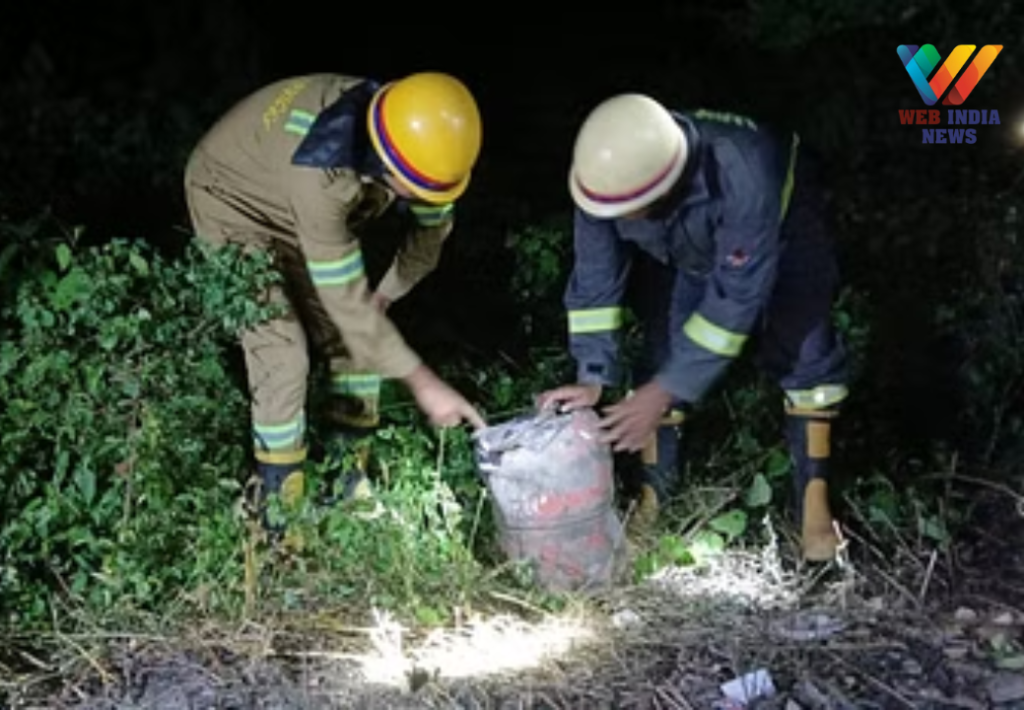Rail Jihad: A Dangerous Trend Threatening India’s Rail Network
India’s railway network, one of the world’s largest, serves as the lifeline for millions, connecting people, cities, and cultures. However, a sinister trend has emerged, posing a grave threat to the safety and security of this crucial mode of transportation: the deliberate attempts to derail trains across different parts of the country. This phenomenon, being dubbed “Rail Jihad” by some, has raised serious concerns among authorities and the public alike.
A Series of Alarming Incidents
Over the past few years, India has witnessed an unsettling increase in attempts to sabotage railway tracks. From the sabotage attempt on the Patna-Indore Express in Kanpur in 2016, which resulted in the tragic loss of over 150 lives, to more recent incidents of tracks being deliberately tampered with in Bihar, West Bengal, and Maharashtra, the pattern is clear: the nation’s railways are being targeted systematically.
One of the most prominent cases involved the Kalindi Express, which narrowly avoided a disaster when it collided with an LPG cylinder placed on the tracks near the Mundheri Crossing in Kanpur. This incident raised concerns about a potential plot to derail the train. Similar incidents have been reported in other parts of India, including the derailment of the Vande Bharat Express and attempts to sabotage other trains.
In many cases, authorities have discovered deliberate acts of sabotage, such as the removal of fishplates, tampering with signaling systems, or even planting explosive devices on tracks. These acts are not mere vandalism but are carried out with the intent to cause massive casualties and disruption, pointing towards a well-coordinated effort to inflict terror.
Motives and Modus Operandi
While the term “Rail Jihad” has been used to describe these acts, it is crucial to approach the issue with sensitivity and avoid stigmatizing any particular community or group. The motives behind these acts can be varied, ranging from personal grievances and local disputes to more organized efforts aimed at creating fear and panic.
Investigations have revealed that in some cases, local groups with political or criminal motives have been involved. However, there are also indications of a larger, more organized effort by extremist groups seeking to destabilize the country. The use of social media to spread false information and instigate such acts has also been observed, complicating the efforts to track down the culprits.

Impact on Public Safety and National Security
The implications of these incidents are far-reaching. Beyond the immediate threat to the lives of passengers, these acts of sabotage undermine public confidence in the safety of rail travel. The economic impact is also significant, as disruptions to the railway network can cause delays in the movement of goods and people, affecting trade and commerce.
For the Indian Railways, which is already grappling with issues of modernization and safety, these acts of sabotage present an additional challenge. Ensuring the security of over 65,000 kilometers of track is no easy task, and requires a coordinated effort between railway authorities, local law enforcement, and intelligence agencies.
Steps to Counter the Threat
In response to this growing menace, the Indian Railways and government have stepped up security measures. Surveillance systems have been enhanced, with more CCTV cameras being installed at key locations. Railway Protection Force (RPF) personnel have been deployed in larger numbers, and there is a greater emphasis on patrolling vulnerable sections of the network.
Intelligence agencies are also working to identify and neutralize the networks behind these sabotage attempts. There is a need for better coordination between state and central agencies to ensure timely sharing of information and swift action.
Public awareness is another crucial aspect. The common people play a vital role in reporting suspicious activities around railway tracks and stations. Encouraging vigilance and timely reporting can help prevent potential disasters.
A Call for Collective Responsibility
The phenomenon of “Rail Jihad” is a grim reminder of the vulnerabilities in India’s transport infrastructure. While the term itself is controversial and can lead to communal tension, the reality of the threat it represents cannot be ignored. It is essential for the media, authorities, and the public to address this issue with a balanced perspective, focusing on the safety and security of all citizens.
Ultimately, safeguarding India’s rail network requires a collective effort. It is not just the responsibility of the authorities, but of every citizen, to remain vigilant and proactive. By working together, we can thwart these nefarious attempts and ensure that the nation’s lifeline remains safe and secure for everyone.

Bullion Trader Duped of Rs 1.6 Crore with Photo of Anupam Kher on Fake Currency
A bullion trader in Gujarat was defrauded of Rs 1.6 crore, according to the city police on Sunday. The incident came to light when the

Gujarat’s Rhea Singha Wins Miss Universe India 2024
Web India News Rhea Singha from Gujarat has been crowned Miss Universe India 2024. The 19-year-old beauty queen will now represent India at the prestigious

Arvind Kejriwal Reaches Out to Public after Resignation, Appeals to People’s Court
New Delhi: After stepping down as Delhi’s Chief Minister, Arvind Kejriwal addressed the public at Jantar Mantar, reiterating his commitment to honesty and transparency. The
Share via:


